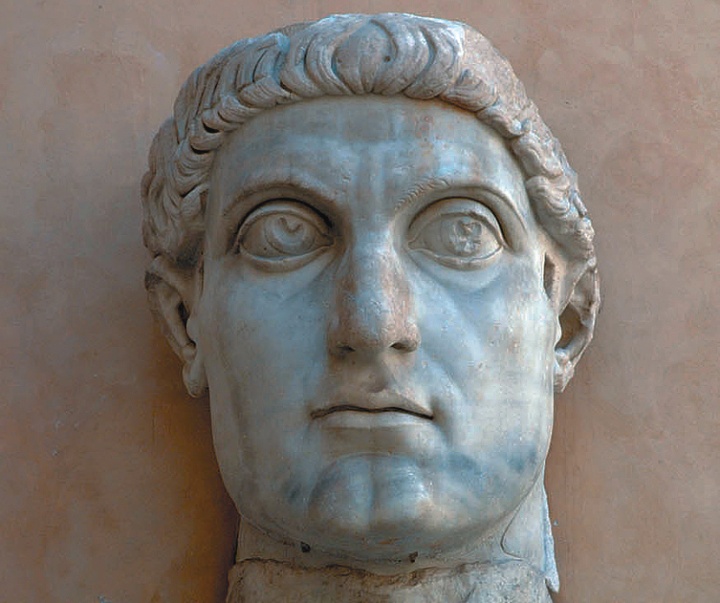Sixties Fan
Diamond Member
- Mar 6, 2017
- 53,764
- 10,437
- 2,140
A lie created by desperate Christians. Nothing else.Smarter than you though. You don’t know what the Holy Trinity is.
Follow along with the video below to see how to install our site as a web app on your home screen.

Note: This feature currently requires accessing the site using the built-in Safari browser.
A lie created by desperate Christians. Nothing else.Smarter than you though. You don’t know what the Holy Trinity is.
I LOVE my cat. I don't have any interest in beastiality. If I did, it would be a thing I need to control and repent of
If I "liked" little children, like so many Democrats, it still a sin, and FOR NOW, a serious crime. Not every impulse is to be acted upon. You know better.


I LOVE my cat. I don't have any interest in beastiality. If I did, it would be a thing I need to control and repent of
If I "liked" little children, like so many Democrats, it still a sin, and FOR NOW, a serious crime. Not every impulse is to be acted upon. You know better.
That was stupid.A lie created by desperate Christians. Nothing else.
We know. The closet Queers are pretty easy to spot."As it was in the days of Sodom and Gomorrah, so shall it be when the Son of Man comes" -- Jesus
As you can see from the Democrat voter responses, WERE HERE
That was stupid.

So, non believers don’t believe. Ok. That’s convincing.Trinity doctrine decided by trial and error
This unusual chain of events is why theology professors Anthony and Richard Hanson would summarize the story in their book Reasonable Belief: A Survey of the Christian Faith by noting that the adoption of the Trinity doctrine came as a result of "a process of theological exploration which lasted at least three hundred years . . . In fact it was a process of trial and error (almost of hit and miss), in which the error was by no means all confined to the unorthodox . . . It would be foolish to represent the doctrine of the Holy Trinity as having been achieved by any other way" (1980, p. 172).
They then conclude: "This was a long, confused, process whereby different schools of thought in the Church worked out for themselves, and then tried to impose on others, their answer to the question, 'How divine is Jesus Christ?' . . . If ever there was a controversy decided by the method of trial and error, it was this one" (p. 175).
Anglican churchman and Oxford University lecturer K.E. Kirk revealingly writes of the adoption of the doctrine of the Trinity: "The theological and philosophical vindication of the divinity of the Spirit begins in the fourth century; we naturally turn to the writers of that period to discover what grounds they have for their belief.To our surprise, we are forced to admit that they have none . . .
"This failure of Christian theology . . . to produce logical justification of the cardinal point in its trinitarian doctrine is of the greatest possible significance. We are forced, even before turning to the question of the vindication of the doctrine by experience, to ask ourselves whether theology or philosophy has ever produced any reasons why its belief should be Trinitarian" ("The Evolution of the Doctrine of the Trinity," published in Essays on the Trinity and the Incarnation, A.E.J. Rawlinson, editor, 1928, pp. 221-222).
Why believe a teaching that isn't biblical?
This, in brief, is the amazing story of how the doctrine of the Trinity came to be introduced—and how those who refused to accept it came to be branded as heretics or unbelievers.
But should we really base our view of God on a doctrine that isn't spelled out in the Bible, that wasn't formalized until three centuries after the time of Jesus Christ and the apostles, that was debated and argued for decades (not to mention for centuries since), that was imposed by religious councils presided over by novices or nonbelievers and that was "decided by the method of trial and error"?

The Surprising Origins of the Trinity Doctrine
Few understand how the Trinity doctrine came to be accepted - several centuries after the Bible was completed! Yet its roots go back much farther in history.www.ucg.org
Right. Do not read the whole article. Take from it only what you want, or only what you are capable understanding.So, non believers don’t believe. Ok. That’s convincing.
Atheists or non believers will always deny the divinity of Christ and the Holy Trinity.Right. Do not read the whole article. Take from it only what you want, or only what you are capable understanding.
I called you out for making a false claim about my beliefs and now you’re too prideful to admit your mistakeThe post I originally reacted to sure looked like it.
Christians with their own brains have also come to the conclusion about Christ not being a god. Not allAtheists or non believers will always deny the divinity of Christ and the Holy Trinity.
Right back at ya!Who gives a shit what you think about it?
You have no credibility as you make false accusations then fail to support it once challenged.Right back at ya!
Again non believers will believe anything they want.Christians with their own brains have also come to the conclusion about Christ not being a god. Not all
And you insist that you do not know what being an extremist is when it comes to your beliefs in Christianity. That is a big laugh.
An idea, Trinity, takes 3 centuries to be finalized after one group or another tries to make more of Jesus then what is written in the NT.
And genius tahuyaman believes in anything ANY Christian has written even if Jesus never agreed to any of it. And not written in any of the NT books.
Over 300 years to come up with that idea. Wow.
Yeah, go figure extremism. The belief of anything about an issue.
That is you, to a T.
God made COVID.God made them.
Are you saying you hate God's creations?
God gave man the ability to make COVID just like he gave us the gift of free will.God made COVID.
Do you hate God's creation, COVID?
Exactly!Right back at ya!
No. Covid is. I'd have as much reason to hate a banana, detest a robin, or despise a chicken.God made COVID.
Do you hate God's creation, COVID?
Really? Can you support that with any credible scientific evidence?…No one would "choose" to be LBGTQ+ willingly..